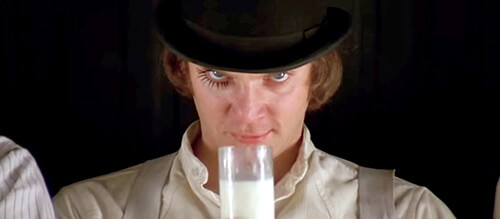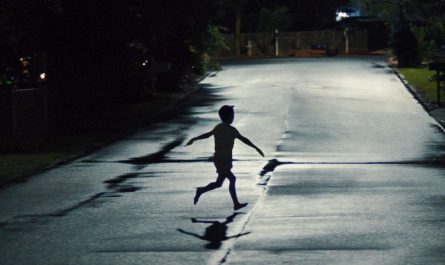Trigger warning! Contains an analysis of sexual assault on-screen.
As I rewatch Succession (HBO) with my family, I find it particularly interesting how Roman plays around with sexual and incest jokes. I believe he is most likely a victim of sexual assault, even though the writers haven’t confirmed it. I keep thinking about the premise of Chekhov’s Gun –You don’t introduce a gun if you’re not going to use it. Why would Roman joke about being abused in different ways: sexual, pedophilia, bed-wetting as a little boy, and incest? Why write about his struggles with sexual intimacy if there isn’t an underlying issue? He hints at the truth by openly joking about what he experienced. However, when he usually jokes around, no one believes him when he says the truth.
For example:
· In S2E5, he jerked off at Gerri’s bathroom because she’s the only one he can have a certain level of intimacy with. The next morning, he openly admitted to doing so at breakfast in front of everyone, but no one believed him.
· In S1E7, at Tom’s bachelor party, he joked about being molested by Connor as a child and being kept in a cage by Connor and Kendall, being told to behave.
· In S2E8, he joked about being sodomized by a camp counselor in St. Andrews.
· In S1E4, he joked about sleeping with his babysitter if he could.
I don’t think Roman was abused by Connor, but I do believe something happened either at St. Andrews or with his babysitter. He plays around, mixing lies and truths, trying to fool everyone, making them uncomfortable as a coping mechanism. We have to remember he tried having sex with Tabitha many times, and couldn’t get through it. In S2E5, they tried to engage in sexual intimacy, but Roman was not getting aroused. Eventually, he asked Tabitha to avoid moving, but Tabitha couldn’t do it, as it was disturbing and came across as a sexual assault fantasy. Roman might be, subconsciously, trying to process his abuse. The indicators are there, and the words “Roman is a victim of sexual assault” were never literal nor explicit, much less any graphic depictions.
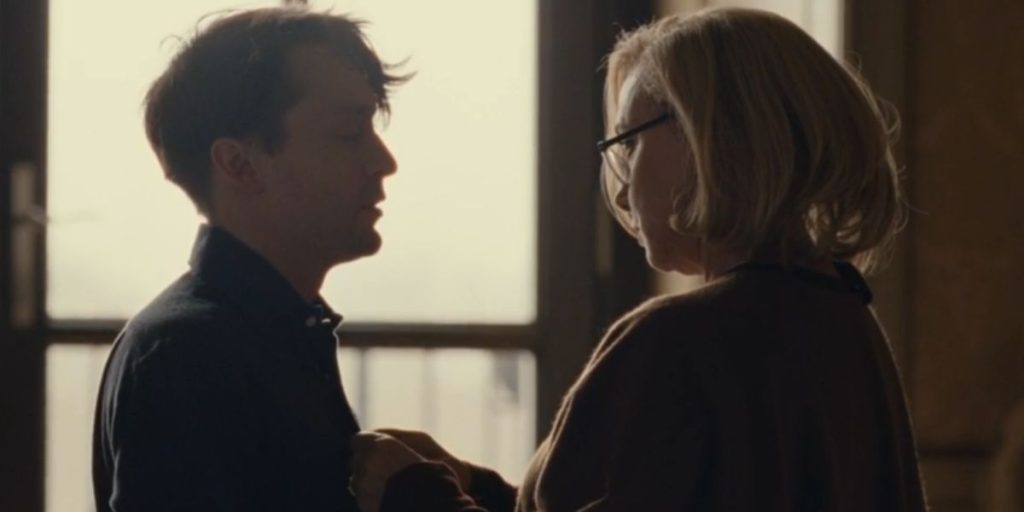
You (Netflix)
You is another show that doesn’t need to explicitly portray sexual abuse. Of course, when Joe kidnaps his girlfriends and traps them in the basement, it is implied that he is abusing them physically, psychologically, and sexually. If that’s not enough, we have to consider details such as sexual fantasies he had with his victims even before he met them. Moreover, he often masturbated through their window by stalking them. For example, in season one, he masturbated while looking at Beck through her window, and he did it again in season four, stalking Kate in her London apartment.
Euphoria (HBO)
In S1E6, McKay and Cassie return to McKay’s dorm after a party, and when they start getting intimate, several masked men enter the room and pull McKay from the bed, pinning him down to the ground, and yelling “McGay!”. Cassie and McKay were already naked, and McKay had been struggling to adapt to college football. This scene showed a disturbing level of aggression as McKay was never into violent games like that, and Cassie kept screaming at them to stop. Although not confirmed, I believe his peers sexually abused him. Especially if we consider that this type of abuse has happened before, for example, the history of Hazing in college football and the rise of scandals of sexual assault in college sports throughout the United States.
The abuse in that episode wasn’t explicitly portrayed, impacting viewers and leaving them disturbed. Oftentimes, imagining what might have happened is far more disconcerting than the violent content itself. This is an example of why explicit sexual assault on-scene is unnecessary. Audiences knew what happened and felt distressed after it; we could even go as far as to argue that this scene increased awareness of abuse in college sports without showcasing graphic sexual violence.
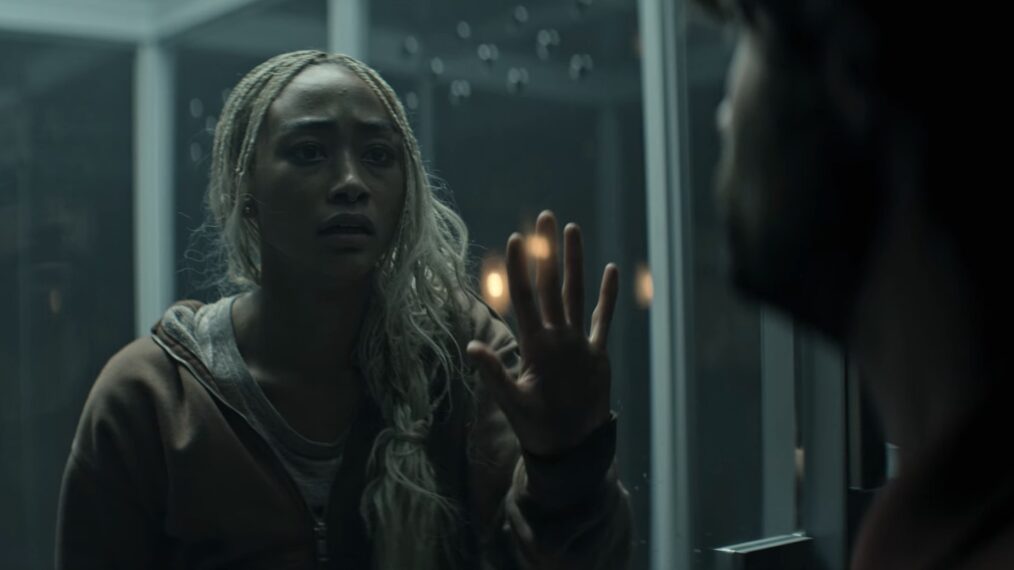
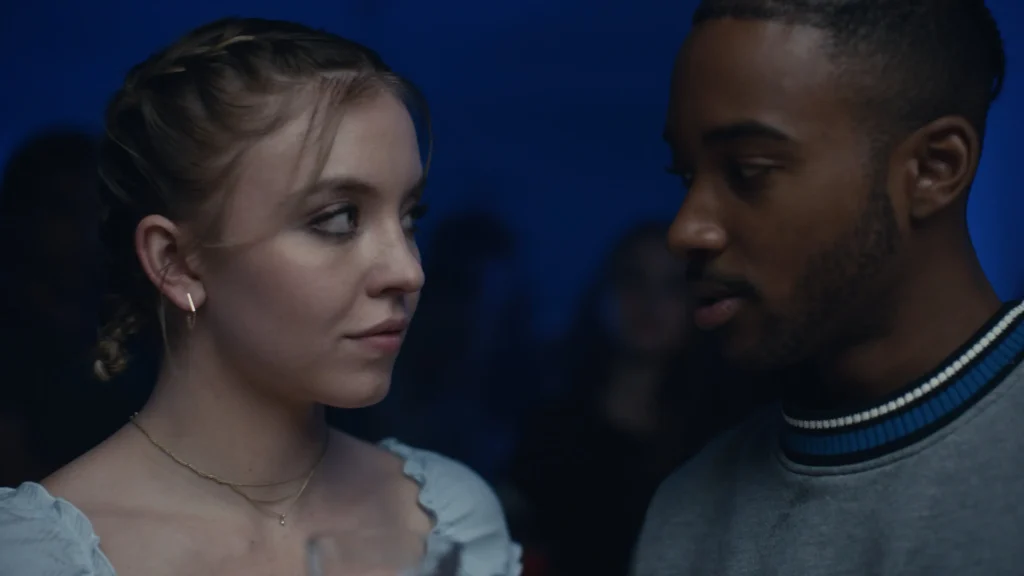
Bojack Horseman (Netflix)
Bojack Horseman is another show with disturbing themes like substance abuse, physical violence, sexual assault, and sexual content. However, when it came to portraying sexual abuse, it only hinted at the events without depicting a detailed image. For example, in season two, he tries to sleep with a seventeen-year-old girl and unconsciously grooms her. Eventually, he realizes his actions are wrong and distances himself. Although nothing happened, this commentary on older men trying to connect with younger women also encourages audiences to reflect on behaviors that tend to get normalized yet should be more questioned.
In season five, during the production of “Philbert”, Bojack is abused by the director, Flip McVicker. In the dressing room, Flip approaches Bojack and tries to open up his robe. Bojack stops his arm, and they start struggling while Flip keeps trying to untie his robe, and Bojack keeps defending himself. After that back-and-forth struggle, Flip shouts, “Why can’t you act professional and get naked!”. This scene is also a strong commentary on the normalized abuse in the film industry, disguised as being “professional”, as if allowing abuse from those in positions of power was “part of the job”.
Again, the incident doesn’t escalate to a more violent aggression, but it still allows audiences to imagine what happens to those who aren’t as famous as Bojack or those who can’t stop abusers like Flip. Also, the show didn’t have to go as far as to depict an explicit scene for audiences to infer that Sarah Lynn was most likely a victim of assault, which led to her struggles with substance abuse.
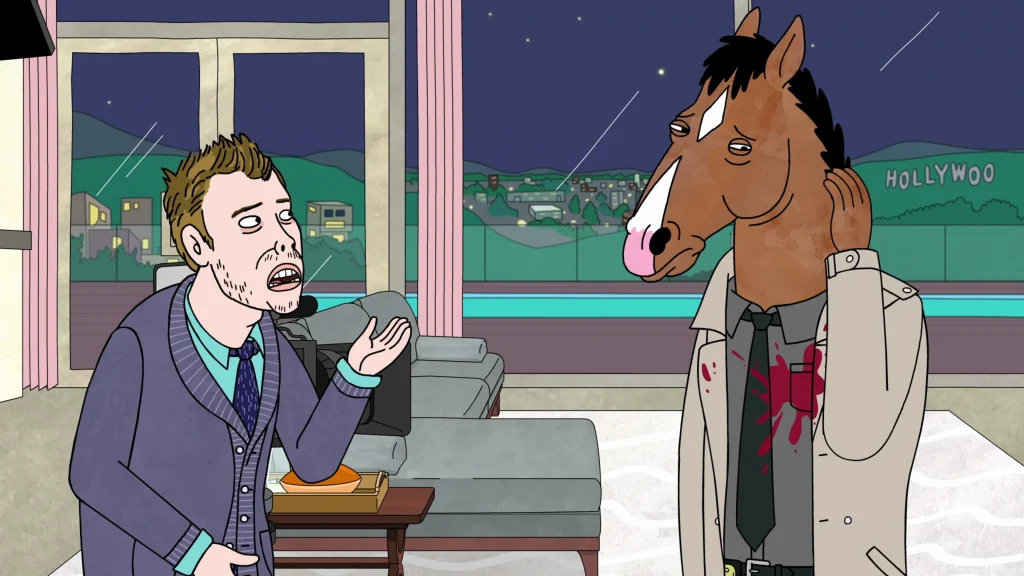
Explicit SA On-Screen
Game of Thrones (HBO)
Game of Thrones includes several scenes of sexual assault, for example, Sansa Stark’s wedding night in S5E6. She gets raped by Ramsey during her wedding night in Winterfell and Theon Greyjoy is shown horrified as he is forced to watch. Daenerys’ first scenes with Khal Drogo at the beach, and how, as a fourteen-year-old girl, she was taught by her ladies-in-waiting how to pleasure a man. In S4E3, Cersei got raped by Jamie after he forced himself on to her next to Joffrey’s body in a sept. This last scene has been heavily discussed by viewers, some claiming it was an assault and others saying it wasn’t. I think this type of debate online shows that many women are victims of sexual assault, but because it happened with their partners or husbands, it gets brushed off as “relationship issues” rather than recognizing it is sexual violence.
Outlander (Starz)
Outlander is even more explicit when it comes to sexual assault scenes, making them long and very emotional. Men and women are victims throughout different seasons of the show. For example, in S1E16, Jamie is brutally raped and tortured by Black Jack Randall. The scene is very graphic and emotionally devastating. Another example is Claire Fraser, who gets several rape attempts and sexual assault by British soldiers or pirates, for example S3E11 she is almost abused by a sailor. In S5E12, she gets kidnapped and assaulted by a group of men when most of the violence is implied, but the emotional response is depicted in detail.

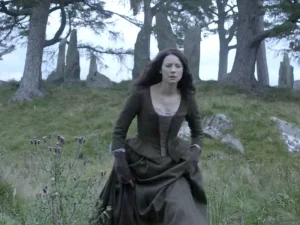
Baby Reindeer (Netflix)
Baby Reindeer focuses on the main character, Donny, sexually assaulted in Episode 4 and how this had a detrimental effect on his mental health and professional career as an actor. He was abused by a producer, and this shows how men victims are often overlooked. Although the episode shows a disclaimer: “The following episode contains depictions of sexual violence that some viewers may find troubling”, it shows a graphic, violent, and severe incident. Just like in Bojack Horseman, this is also commentary on the public knowledge of the abuse that happens in the entertainment industry behind closed doors and how most of the time, justice is served after it’s too late, if ever served.
A Clockwork Orange (Stanley Kubrick)
Alex and his friends rape the writer’s wife. First, viewers can see how they catch her and hold her against her will, then they rip her clothes apart and while they take turns raping her, Alex is singing. The happy song contrasts with the psychopathic and incredibly cruel actions of Alex. This scene shows audiences more about Alex and his twisted mind rather than the rape itself, it focuses mainly on his facial expressions and the lack of empathy or guilt. It, disturbingly, deepens on how joyous Alex feels after the atrocities he commits.
Disclaimer (Apple TV)
Disclaimer has very explicit sexual scenes. Due to the nature of the story, the scenes are initially shown as sensual and consented, giving viewers the idea of Catherine being a cheating wife and a groomer who seduces an innocent young man, Jonathan, backpacking through Italy. In the end, the same sexual scenes are repeated, this time showing a more detailed image of how she was, instead, raped by Jonathan. We can see her emotional distress, how she cries while Jonathan forces himself onto her, and how he grabs her wrists, making it impossible for her to move.
Just like in You (Netflix), Jonathan stalks Catherine from afar and takes unconsented pictures of her breasts, thighs, pelvis, and even catches a glimpse of her naked pelvis while she was trying to shake the sand off her.
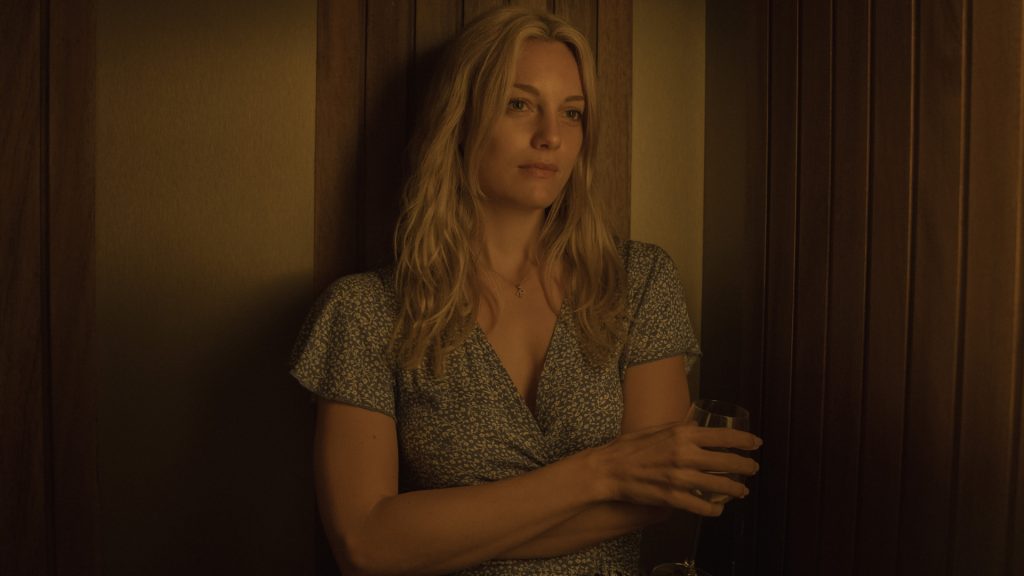
What is the point of explicit SA On-Screen?
If we compare shows or movies that portray explicit abuse or insinuate it, we could argue that both succeed at horrifying and shocking audiences. So why go through the explicit route? I guess the more explicit the more shocking they are, almost as if we had nightmares of how violent those scenes were, repeating them constantly in our heads. Some directors and critics have debated whether such depictions are necessary or exploitative. I believe there are two slopes: one of those who are intentionally creating shocking images to disturb audiences and make them empathize with the horrors of sexual assault by providing a tiny window of how traumatic the experience is. Sort of forcing the audience to experience it as close to reality as possible, even though it’s nowhere near reality. The other slope is morbidity and an exploitative approach to such tragedies only to make more money and use others’ trauma as an attention-grabbing machine. I think some directors are undeniably disturbing. If we think of directors like Stanley Kubrick or Quentin Tarantino, their style is usually violent or aggressive. Perhaps they are trying to portray their perspective on violence through the screen, not necessarily projecting their own frustrations, but rather as an attempt to burst the audience’s bubbles and let them know violence is everywhere and many times unescapable.
Can Scenes of SA Desensitize Audiences?
The answer to this frequently debated question is far more complicated than we’d like it to be. I used to believe that violence on screen would immediately desensitize audiences, making them more accepting of violence on screen, therefore, in real life as well. While there is no denying that viewers have become more tolerant of aggression on-screen through time, just compare XIXth century horror to XXth century to XXIst century. However, the idea that the public tolerates violence in real life more after a couple of violent scenes is not entirely true.
According to the manuscript, Desensitization to Media Violence: Links With Habitual Media Violence Exposure, Aggressive Cognitions, and Aggressive Behavior; written by Barbara Krahé, Ingrid Möller, L Rowell Huesmann, Lucyna Kirwil, Juliane Felber, and Anja Berger, it is uncommon for short term violence on screen exposure to impact someone’s behavior, but short-term exposure can increase arousal and imitation in some people. To quote the manuscript:
“Evidence is less clear with regard to short-term desensitization effects in experimental settings. In one recent study, Carnagey et al. (2007) showed that participants’ physiological arousal to depictions of real-life violence was reduced after participants had played a violent video game compared to a control group that had played a nonviolent game. In contrast, Funk et al. (2003) found no evidence of short-term desensitization (indicated by reduced empathy with others in need of help) in the children in their study who played a violent video game as compared with those who played a nonviolent game” (Krahé Et Al. 2011 ).
“Past research has varied with regard to the critical measure of desensitization. Some studies have used self-reported affect (e.g., Fanti, Vanman, Henrich, & Avraamides, 2009), while others have used different indicators of physiological arousal, such as heart rate, blood pressure, skin conductance, or measured brain activity (e.g., Bartholow et al., 2006; Carnagey et al., 2007)” (Krahé et al. 2011 ).
Overall, studies like Carnagey et al. (2007), Funk et al (2003), and Krahé et al (2011) have shown little evidence of desensitization because of short-term consumption of violent media. However, habitual viewing is more likely to increase desensitization. Participants who regularly consume violent media show weaker emotional responses to violent stimuli– measured via physiological indicators like heart rate and skin conductance. To cite Krahé et al (2011):
“It has been reported that men exposed to sexual violence in film have been more accepting of interpersonal violence and sexual aggression, show less sympathy towards rape victims and may be less likely to see perpetrators as guilty” (Krahé et al. 2011).
“According to our script theory of desensitization, media violence exposure should be associated with desensitization of anxious arousal to violent films and corresponding increases in pleasant arousal, but the desensitization should be specific to arousal during violent clips” (Krahé et al. 2011).
The study also links aggression to cognitive responses; for example, repeatedly watching violence dulls emotional reactivity and increases the likelihood of aggressive thinking. Statistical models suggest a mediated effect: habitual exposure leads to emotional desensitization, which in turn leads to increased accessibility of aggressive thoughts. This supports the idea that emotional numbness isn’t just a side effect, but rather links media exposure and aggression. Repeated exposure fosters observational learning and desensitizes emotional responses, making aggression more likely over time.
It’s very important to note, the effect isn’t deterministic; not every heavy consumer of violent media becomes violent, but it raises aggression risk, especially when combined with other factors or reinforcing environments.
Final Thoughts
I don’t think we should ban violence on screen, but rather, balance it out. We know short-term and infrequent exposure to violent films does not directly correlate to aggressive behavior, but we must remember that habitual exposure leads to desensitization. Desensitization makes it harder to empathize with victims of sexual assault, who already struggle to get recognition or be believed. Shows like Outlander or Game of Thrones have established themselves as violent, filled with gore, morbid, and impactful scenes, and have become successful at disturbing audiences. Nonetheless, series or movies that hint at assault without being explicit also succeed at impacting the audience’s emotions by playing with their imagination. Why build a detailed explanation of sexual violence scenes, then?
I understand that violence on-screen can also be part of a director’s style, but if we consider the amount of abuse that happens every second around the globe, which is also normalized or disregarded, explicit sexual assault scenes may harm victims even more. Just compare sexual assault scenes from Game of Thrones to House of the Dragon. HOTD did not lose its violent signature from GOT’s universe, it kept the blood, the fire, the gore, the fights, the violence, but when Aegon Targaryen raped his servant, Dyana, graphic scenes were not part of the plot, and it worked. As audiences, we can still imagine what assault could look like without exposing ourselves to the likelihood of desensitization after habitual consumption, and therefore, the consequences that come from it.
Heinrichs, A. (2021, November 30). Male survivors unite to expose sexual abuse at college football’s biggest rivals. The Guardian. Retrieved from https://www.theguardian.com/sport/2021/nov/30/ohio-state-michigan-doctors-sexual-abuse-college-football
Krahé, B., Möller, I., Huesmann, L. R., Kirwil, L., Felber, J., & Berger, A. (2011). Desensitization to media violence: Links with habitual media violence exposure, aggressive cognitions, and aggressive behavior. Journal of Personality and Social Psychology, 100(4), 630–646. https://doi.org/10.1037/a0021711


